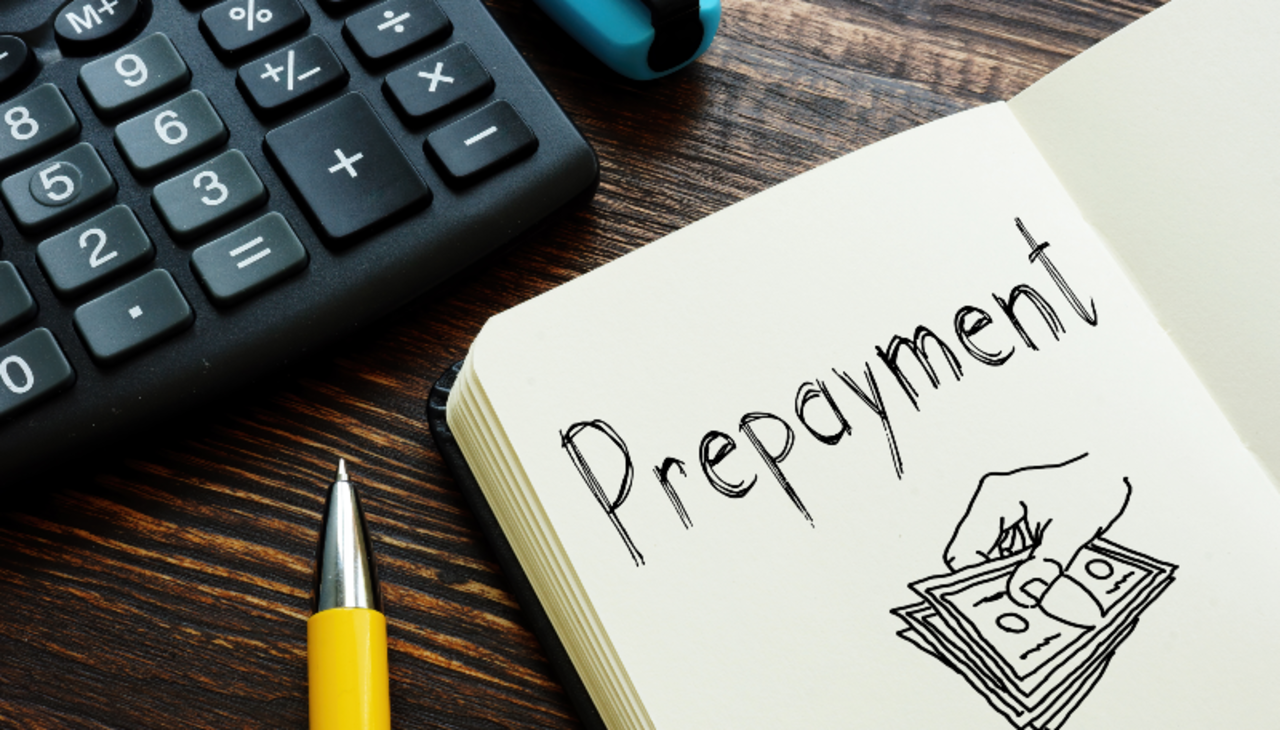Can I prepay my mortgage and is it a good idea?

I’ll be the first to admit that mortgages can be really difficult to wrap your head around. It’s one area of personal finance that many of us have or would like to have at some point, and others may not want or have access to, yet it’s probably one of the least understood.
As someone who has always struggled with the idea that not all debt is bad debt, my first instinct when I started looking for a mortgage was to wonder whether there are any ways to reduce my debt and pay off my mortgage faster. One of those ways is prepayments.
WHAT ARE MORTGAGE PREPAYMENTS?
You have an option in your mortgage agreement that allows you to make payments towards the principal of your mortgage on top of your regular payments.
These are most often allowed either on a monthly basis or as a lump sum. Mortgage prepayments allow you to reduce the amount of interest you pay over your amortization period (i.e. the entire lifespan of your mortgage), and also allow you to pay off your mortgage faster.
For example, some mortgages will allow you to double up on your monthly payments. If you’re paying $1,000 per month ($12,000 per year), doubling your monthly payments will allow you to pay an extra $12,000 per year towards the principal of your mortgage. Some mortgages may also let you pay that $12,000 as a lump sum each year.
The typical prepayment allowance is 0-100% for monthly prepayments (i.e. up to twice your monthly payment) and 0-25% per year for lump sum payments (i.e. at 25% each year you could pay off your mortgage in 4 years). Mortgages that have a prepayment option will allow you to prepay up to a certain amount without being charged a prepayment charge.
For example, a mortgage with an annual prepayment option of 10% means that once every 12 months you have the option to pay up to 10% of the principal amount of your mortgage without notice and without a prepayment charge. If you pay off more than 10%, you pay a charge on the entire amount of the prepayment.
Prepayments are typically allowed once in a 12-month period starting on the interest adjustment date or the anniversary of that date, and cannot be carried over to the next 12-month period. So if you decide halfway through that you want to make a prepayment, you’ll have to wait until the anniversary of your interest adjustment date to do so.
ARE PREPAYMENTS A GOOD IDEA?
While reducing the amount of interest you pay and paying off your mortgage faster may seem like a no-brainer, it’s important to understand when it is and isn’t a good idea. To work this out, you need to look at your bigger financial picture.
First, let’s look at interest rates. If your mortgage has an interest rate of 2%, let’s say, but the average return you can get by investing your money elsewhere is 4%, you’d probably be better off overall and in the long run by investing your money rather than prepaying your mortgage, because you’ll end up making more money in investments than you can save by prepaying.
For example, if you have a $500,000 mortgage with a 2% interest rate and a 25 year amortization period, you will pay a total of $135,176.82 in interest over the 25 years. If you prepaid $10,000 at the start of this mortgage you’d pay a total of $128,851.85 in interest over the 25 years, saving $6,324.97. If instead you invested your $10,000 at a 4% rate of return compounded annually, you’d earn a total of $16,658.36 in interest over 25 years. Under these conditions, this means you’d be able to make over $10,000 more by investing your money than you would by prepaying your mortgage.
Next, let’s look at Registered Retirement Savings Plans (RRSPs) and Tax-Free Savings Accounts (TFSAs). These are both great savings vehicles you can contribute to each year that reduce the amount of tax you pay on your earned income. If you’re not already maxing out your contributions to your RRSP and your TFSA, it may be a better idea to put your money towards these first, before considering prepayments on your mortgage.
Finally, let’s look at the potential tax savings with mortgage interest. While you cannot deduct your mortgage interest on your taxes as an individual, there are a few scenarios in which you can. If you run a business from your home, or you rent out your property, you can deduct a portion of your mortgage interest from your taxes. In these cases, it may be more beneficial to take advantage of these tax savings, as making prepayments would reduce the amount of mortgage interest you could use to offset your tax bill.
TALK TO A MORTGAGE OR TAX ADVISOR
Determining whether or not mortgage prepayments are for you can be difficult.
On my own mortgage, I wanted to make sure I had the option to make prepayments written into my agreement, in case at any point during my 30-year amortization period it made financial sense to make them. At the moment, I run a business from home so I’m able to deduct a portion of my mortgage interest on my taxes, and I’m also earning more interest on my investments than I pay in mortgage interest. So for me, making prepayments isn’t the most financially advantageous move right now. But that may change.
Now I have a mortgage, I make a point of talking to my accountant and seeking professional advice each year to determine the best way to manage it.








*The New Client 2.10% Interest Rate and $150 Cash Bonus Bundle Offer (the "Offer") is available to new Tangerine Clients who: (a) have a Client Number created between November 24, 2020 and July 31, 2021, (b) become a Tangerine Client using the Promo Code “EARNMORE”, (c) open an Applicable Savings Account within 30 days of the date their Client Number was created, and (d) open a Tangerine Chequing Account within 30 days of the date their Client Number was created (collectively the “Offer Qualifying Conditions”). The 2.10% Promotional Rate will apply to deposits made to an Eligible Client’s Applicable Savings Account(s) for 153 days (5 months) beginning on the date all Offer Qualifying Conditions have been met, to a maximum of $1,000,000 (in the currency of the Applicable Account) per Applicable Savings Account Type (for deposits to registered Applicable Savings Accounts made through a T2033 form, please see the full Offer Terms and Conditions). The Promotional Rate is an annualized rate, calculated daily and paid monthly. To be eligible for the $150 Cash Bonus, in addition to meeting all Offer Qualifying Conditions, an Eligible Client must switch their eligible payroll direct deposit for at least 3 consecutive months and must have the first payroll direct deposit received in their Tangerine Chequing Account within 60 days of Chequing Account opening. Limit of one (1) Cash Bonus per Primary Account Holder. The Offer is only applicable to Accounts where the Eligible Client is the Primary Account Holder. Offer is not transferable and can’t be combined with other promotional savings rate offers or chequing cash bonus offers. Full Offer Terms and Conditions, including definitions of any capitalized terms and a list of eligible payroll direct deposits, are available here. Offer may be changed, extended or cancelled without notice.